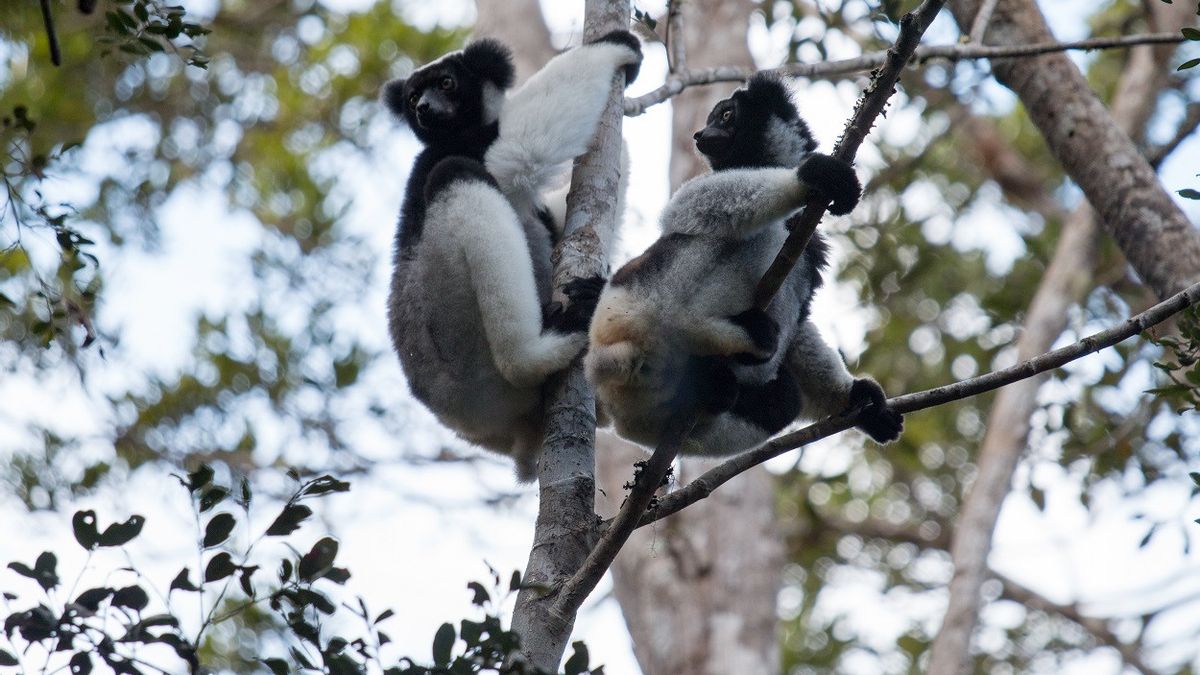JAKARTA - If animals can be nominated for the prestigious Grammy music award, this lemur can win. It's because they have rhythm.
Indri indri, a lemur species in Madagascar, is one of the few animal species that has rhythm, according to a study published Monday this week in the scientific journal 'Current Biology'.
Indri is the largest living lemur species and the only one that sings, which makes it the perfect animal to study, to see if it has rhythm, said study co-author Chiara De Gregorio, a researcher in the department of life sciences and systems biology at the University of Turin in Italy.
Rhythm is defined as "a pattern of duration consisting of sound and silence," he said, citing CNN Oct. 25.
Indri singing sounded like lower and higher howling notes that pierced the air. The researchers wanted to see if black-and-white lemurs had categorical rhythms, the ability to create different types of rhythm patterns.
After 12 years of research, scientists analyzed 636 vocalization recordings from 39 adult senses, finding they had two different rhythm patterns to humans. Like us, lemurs are primates.
The first is isochrony, which is when the intervals between notes are spaced the same way, says De Gregorio. The research team found the lemurs also sang in a 1:2 ratio pattern, i.e. when the second interval was twice as long as the first, he added.
Both interval patterns can be found in the intro to Queen's "We Will Rock You," explains De Gregorio.

Further analysis found that male sense lemurs held their notes longer and sang longer durations between notes than females.
Singing requires a lot of energy, says De Gregorio, so extended intervals allow male lemurs to sing for longer periods of time. Collecting recordings of lemur singing is no easy feat.
The tree-dwelling indris live deep in the canopy of Madagascar's rainforest, so researchers spent years tracking them in the forest to try and hear them sing.
After a day of tracking, the furry mammal may not even sing at all, says De Gregorio.
Researchers don't know exactly why Indri developed this unique talent, but De Gregorio says he believes it could develop for long-distance communications and territorial defense.
SEE ALSO:
Music is an important part of our lives, but the reasons are still debated, he says.
"Our results can serve as important evidence for our understanding of the origins of our rhythmic abilities, our love of dancing, and our passion for music," said De Gregorio.
The next step in his research is to determine whether these endangered animals know how to sing at birth or if it's a learned skill they practice.
The English, Chinese, Japanese, Arabic, and French versions are automatically generated by the AI. So there may still be inaccuracies in translating, please always see Indonesian as our main language. (system supported by DigitalSiber.id)















